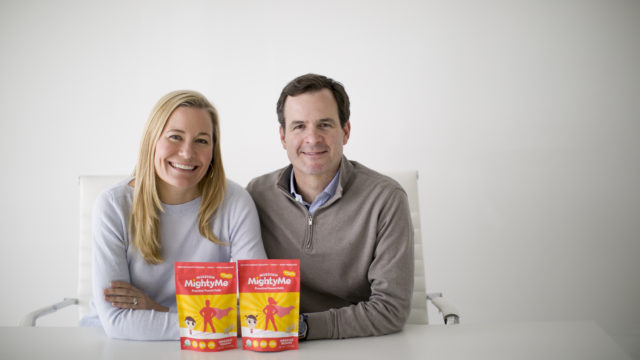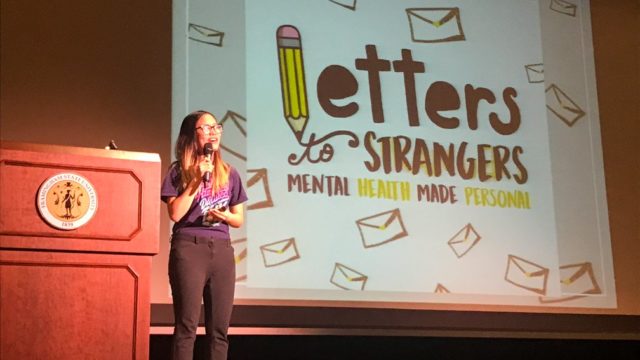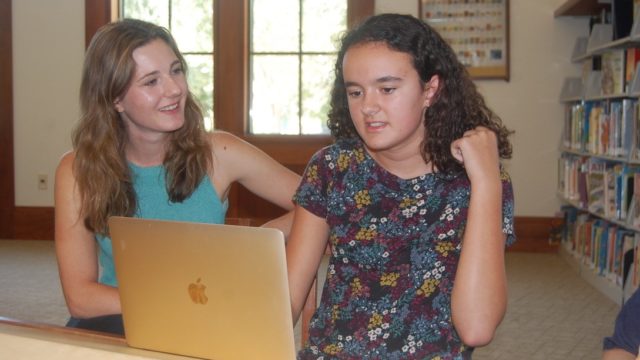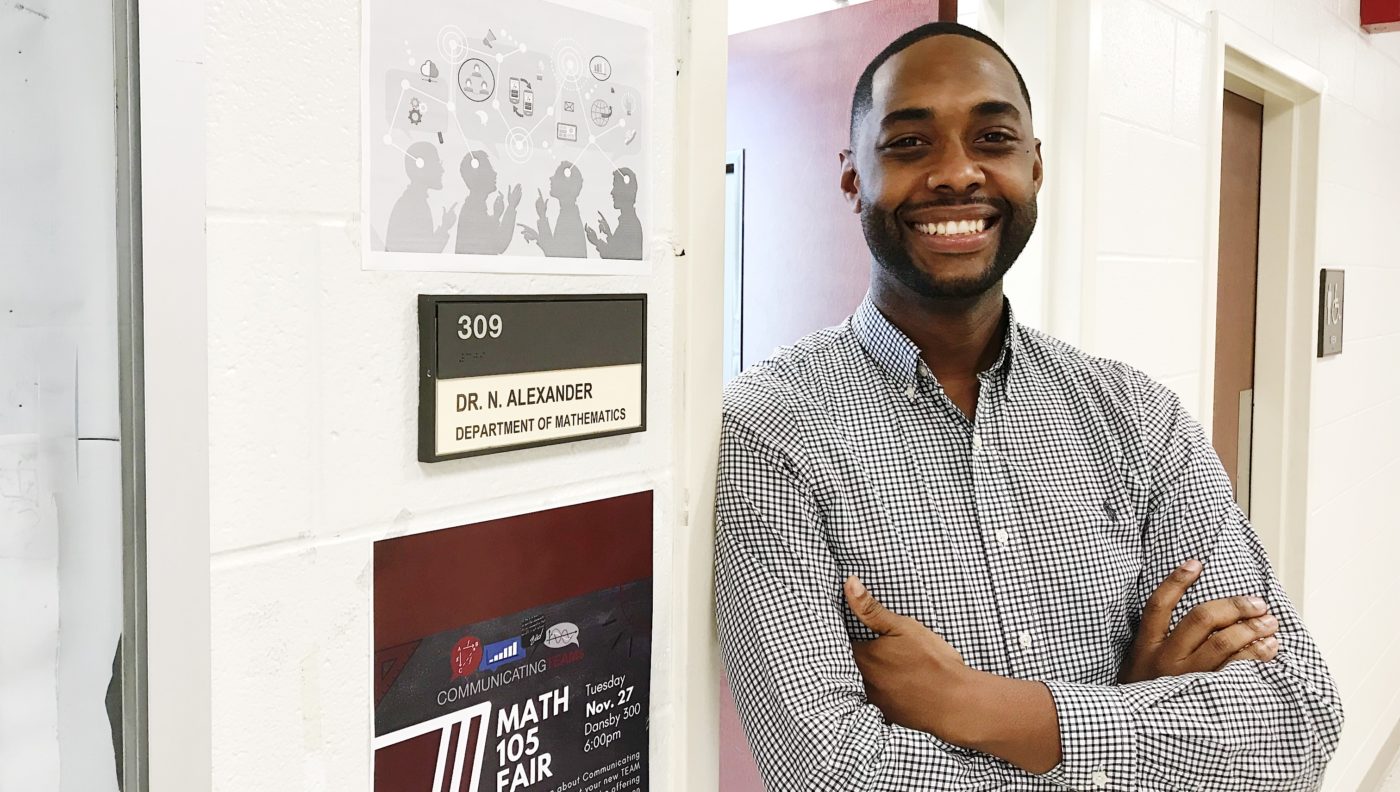
When Empathy Goes Viral
How Nathan Alexander is Creating Social Justice Through Mathematics
A few weeks ago, social media buzzed with a photo of a male math professor teaching with an adorable baby dressed in pink strapped to his chest. The photo, snapped and Tweeted by a student in the class, was retweeted 81,764 times, liked 332,503 times, and featured by the Washington Post, CNN, and even Oprah Winfrey.
To some, a professor holding a student’s baby in class, or even allowing a baby in class, is pretty unusual. Those people don’t know the subject of that photo, 2003 Coca-Cola Scholar Nathan Alexander, the James King, Jr., Visiting Professor of Mathematics Teaching at Morehouse College.
Student came to class today with his child due to no babysitter or anybody to watch her while he was in class.
My professor NATHAN ALEXANDER said “I’ll hold her so you can take good notes!” #HBCU #morehouse #Respect pic.twitter.com/oogIqetseS— TheOriginal™ (@Original_Vaughn) March 1, 2019
“As teachers, we find ways to support our students and their learning, and this time was no different. I’m very happy that the world gets to see this moment. More importantly, though, I’m happy that we all get to respect what parents do every single day a little bit more.” said Nathan.
The empathy on display in that viral photo aligns with Nathan’s mission to make math and education accessible to everyone.
At Morehouse, Nathan works with a lot of first-year students who have had bad experiences in math and he works to develop a community to support them in becoming successful in mathematics. He’s also the director of Communicating TEAMS (Communicating by Thinking Effectively in and About Mathematics), a new campus initiative that teaches students to improve their communication using mathematics.
On top of that, Nathan makes a state-wide impact as the Georgia State Director for a STEM Teaching Fellowship funded by the Woodrow Wilson National Fellowship and Robert W. Woodruff Foundations, supporting prospective secondary teachers with backgrounds in mathematics and science so they can teach in high-need Georgia secondary schools.
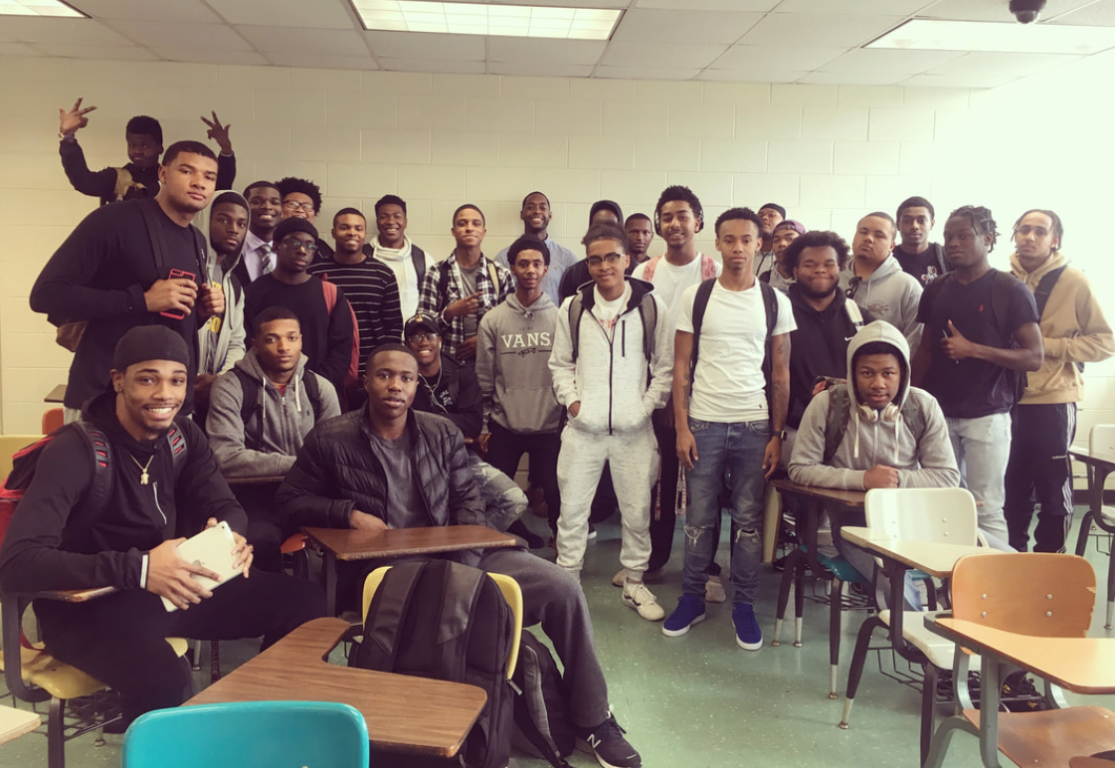
Nathan’s first class of undergraduate students at Morehouse College.
In some related work, Nathan is also investigating various obstacles to learning mathematics and working with faculty members to help them craft innovative solutions for their students. Recently, he published a paper in the PRIMUS journal that connects mathematics and social justice. In this paper, he and two colleagues develop a model for mathematics faculty to engage in difficult conversations about topics related to social, economic, and racial justice.
“Most people think of mathematics as this thing that simply solves problems that most people are not interested in – something that only astrophysicists or people that work at NASA do,” said Nathan. “People, to no fault of their own, create this self-construction of their mathematical selves they don’t even realize and this is what we call math identity. So, when I say, ‘Oh, you’re smart and good at math,’ I’m implying that I’m bad at math, and those beliefs are held through time.
“People don’t really say, ‘Oh gosh, that looks like reading. I don’t like reading, I tried those reading classes and I couldn’t do them,’ but we say that about math.”
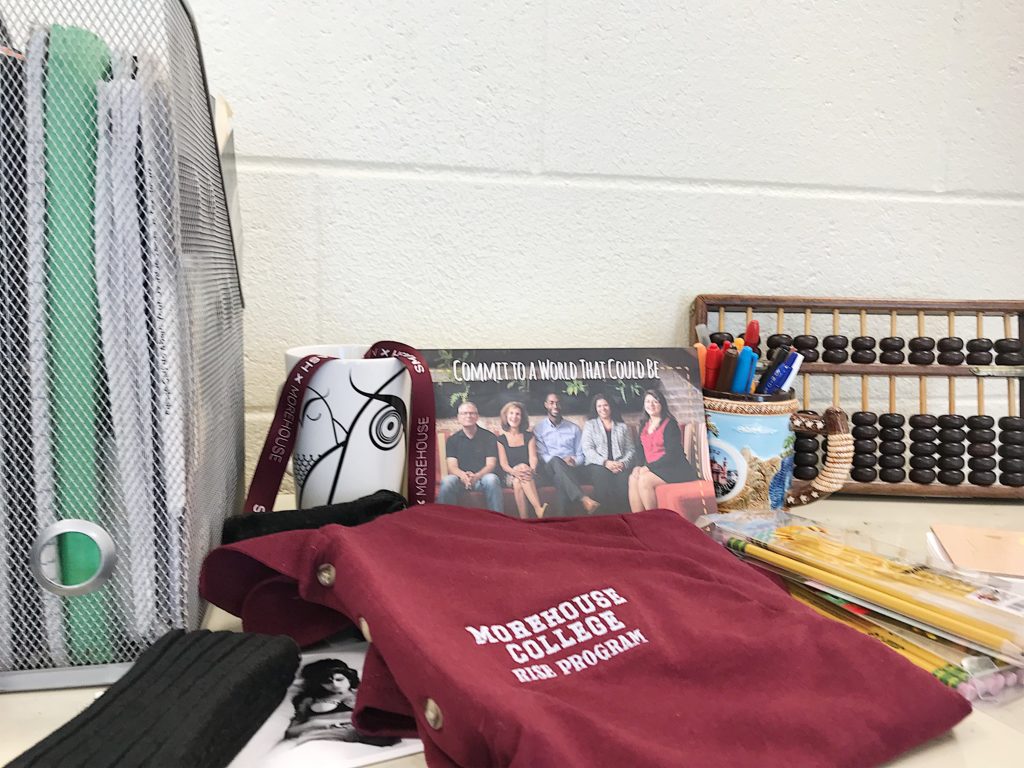
To Nathan, the solution is to talk about mathematics in a different way, and to show that math has a social impact for everyone, not just people at NASA.
To explore these realities, Nathan works with high school students in the SMASH (Summer Math and Science Honors) program at Morehouse College, a 5-week summer residential program, where students engage in advanced science and mathematics courses. “It’s about taking social realities and thinking about quantifying those social realities,” he said. For example, Nathan is working with high school students on the presence of food deserts and gerrymandering, and they use mathematical modeling to make sense of these problems in the real world.
“In Google Maps, I can type in fast food restaurants, and they will show up in all different areas,” he said. “Then we can quantify food deserts and why there are more fast food restaurants and less fresh vegetables in some areas and how they are directly related to socio-economic status and racial groupings.”
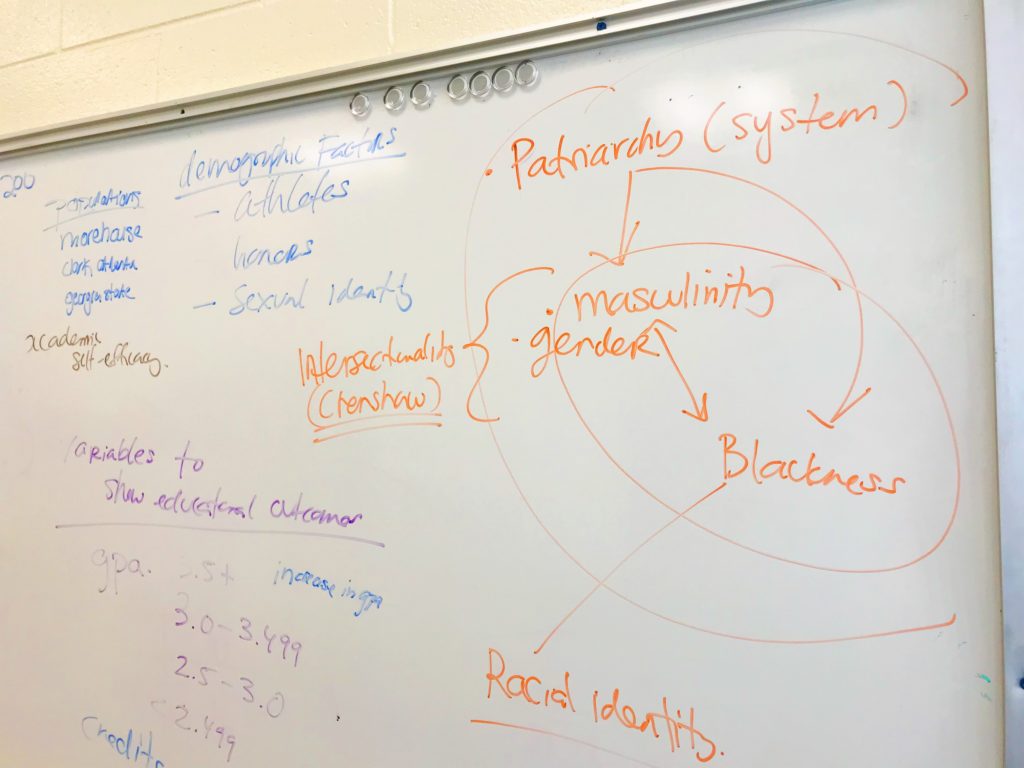
Nathan thinks this mathematical approach to thinking about problems “allows students to really think through the broader applications. It takes dinner conversations to the classroom and allows us to come together on some things that we already know and feel.”
Nathan had a good deal of teaching experience even before he graduated college. As a double mathematics and sociology major at UNC Chapel Hill, Nathan kept busy – lead choreographer for his dance group, step master for his fraternity, homecoming king, and an enthusiastic tutor in the Math Help Center. But when it was time to graduate, he wasn’t sure what he wanted to do for a career, choosing to pursue a PhD in mathematics and education at Columbia University. In New York, Nathan taught all over the city – Brooklyn, the Bronx, Manhattan – and connected with local Coke Scholar alumni when several attended 1999 Scholar Katori Hall’s 2011 Broadway play, The Mountaintop.
“After the play we all went to dinner, and as we’re talking I realize I’m a part of something larger – this woman has a Broadway play, this person has a startup – and I’m a part of this community,” he said. “You see other people so deeply invested in something that matters and that they’re good at. There’s a unity, a central purpose. It’s pretty amazing.”
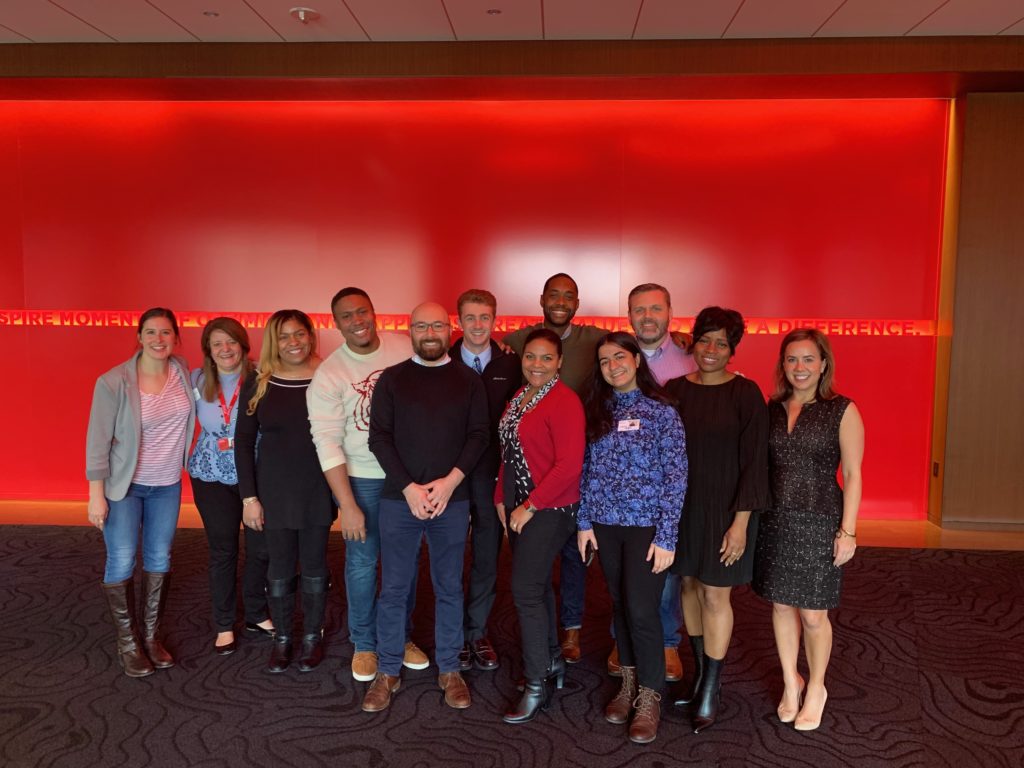
Nathan helped create the 2019 class of Coca-Cola Scholars, serving on the Regional Interview Committee this year.
That reconnection in New York brought a realization to Nathan.
“I wouldn’t be the person I am today without the Coca-Cola Scholars Program. I don’t say that lightly. I think to take a young person who realizes that they can create positive change and put them around others who have realized that same thing, it’s almost like a catalyst of something – a spark,” he said.
That spark Nathan describes helped him channel his passions into three distinct areas: teaching, policy, and research.
“The question I really am focused on is, ‘how do we change students’ experiences with and perceptions of mathematics in college, but with a specific focus on students who have been historically underrepresented, or really not allowed to learn?’ As an African American, I would have been killed for trying to learn to read and write in the 1600s, and now, on the other end, there are students who can’t read, especially students that look like me. When you add math to that equation, it’s why I’m doing this work,” he said. “It’s about equipping people with the literacy skills and the knowledge and the spaces that they need to get to where they want to go. And when we do that, well, I think we can actually start talking about social justice.”
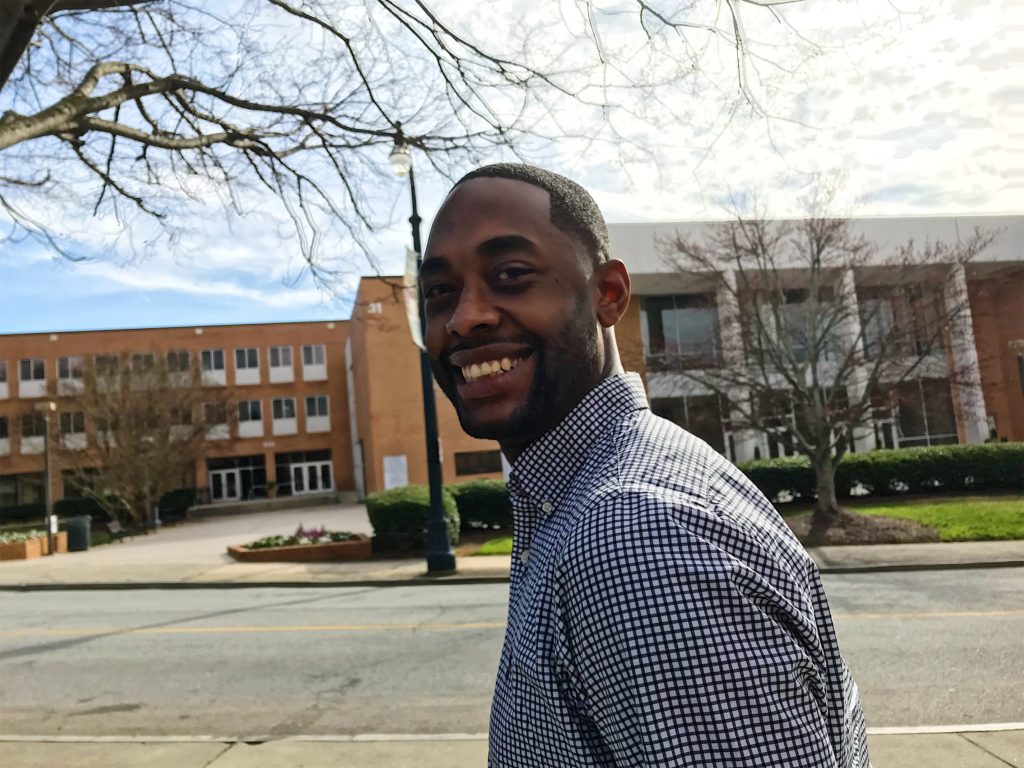
He’s certainly on his way. Nathan received a grant from ACS (the Associated College of the South) to bring faculty from 16 colleges to Morehouse College and Spelman College this summer to learn about teaching social justice in mathematics.
“I hope we can all share what we think is useful about our practices and create some social justice activities to go along with them. I think once we do that, the social movement begins,” said Nathan.
Oprah, get your Instagram ready.
Learn more about Nathan at professornaite.com.
The Coca-Cola Scholars Foundation celebrates and empowers visionary leaders who are refreshing the world. With its 31st class of Coca-Cola Scholars, the Foundation has provided more than $69 million in scholarships to over 6,150 program alumni who together have become a powerful force for positive change.


